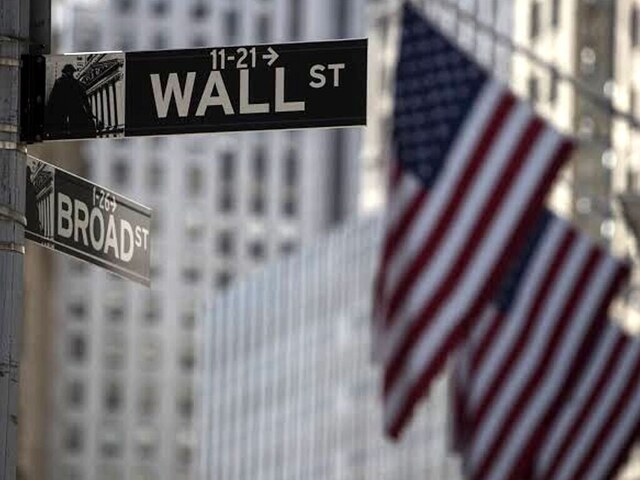NEW YORK: The major US stock indexes pulled back from record intraday peaks hit earlier on Friday after weaker-than-expected August jobs data stoked worries of an economic slowdown and dampened some of the optimism around potential Federal Reserve rate cuts.
Data showed the United States economy created only 22,000 jobs last month compared to an estimate of 75,000 additions, confirming softening labor market conditions.
Traders of futures tied to the Fed’s policy rate added to bets that the US central bank will trim rates in quick succession, starting this month, with a jumbo 50-basis-point reduction now on the table.
Traders now see an 11.6 percent chance of a 50-bps rate cut this month – a stark change from no such bets a month ago – CME’s FedWatch Tool showed.
“This is more of a recessionary jobs report than not… If they’re (the Fed) cutting in response to a weakening labor market, that is initially not a bullish setup for the stock market,” said Kevin Gordon, senior investment strategist at Charles Schwab.
Economically sensitive sectors bore the brunt of the decline, with banks falling 2.3 percent, energy dropping 2 percent, and industrials shedding 1.1 percent.
BofA Global Research also adjusted its outlook following the report, forecasting one quarter-point cut each in September and December.
The three major US stock indexes scaled fresh peaks early in the session, but the gains petered out as economic concerns set in.
At 11:51 a.m. ET, the Dow Jones Industrial Average fell 267.03 points, or 0.59 percent, to 45,354.26, the S&P 500 shed 31.98 points, or 0.49 percent, to 6,470.21, and the Nasdaq Composite lost 50.90 points, or 0.23 percent, to 21,656.79.
Broadcom was in a bright spot, surging 9 percent to a record high – and lifting the Philadelphia SE Semiconductor index 1.1 percent – after the chip designer forecast fourth-quarter revenue above estimates and expected AI revenue growth to “improve significantly” in fiscal-year 2026.
Investors have lately been concerned about the lofty valuations of AI-linked firms that briefly paused Wall Street’s rally in August.
Rising rate-cut bets helped drive the real estate sector up 0.7 percent, while the Philadelphia Housing Index climbed 2 percent to an eight-month high.
The S&P 500 and the Nasdaq were on track for weekly gains despite September being a bad month historically for US equities. The Dow looked set for weekly declines.
Investors will be on the watch for consumer prices data, due next week.
A 50 basis-point-cut was “not firmly” on the table unless markets get more clarity on inflation, Gordon said. Tesla rose 2.8 percent after the EV-maker proposed an about USD1-trillion compensation package for top boss Elon Musk, pegged to lofty performance targets.


